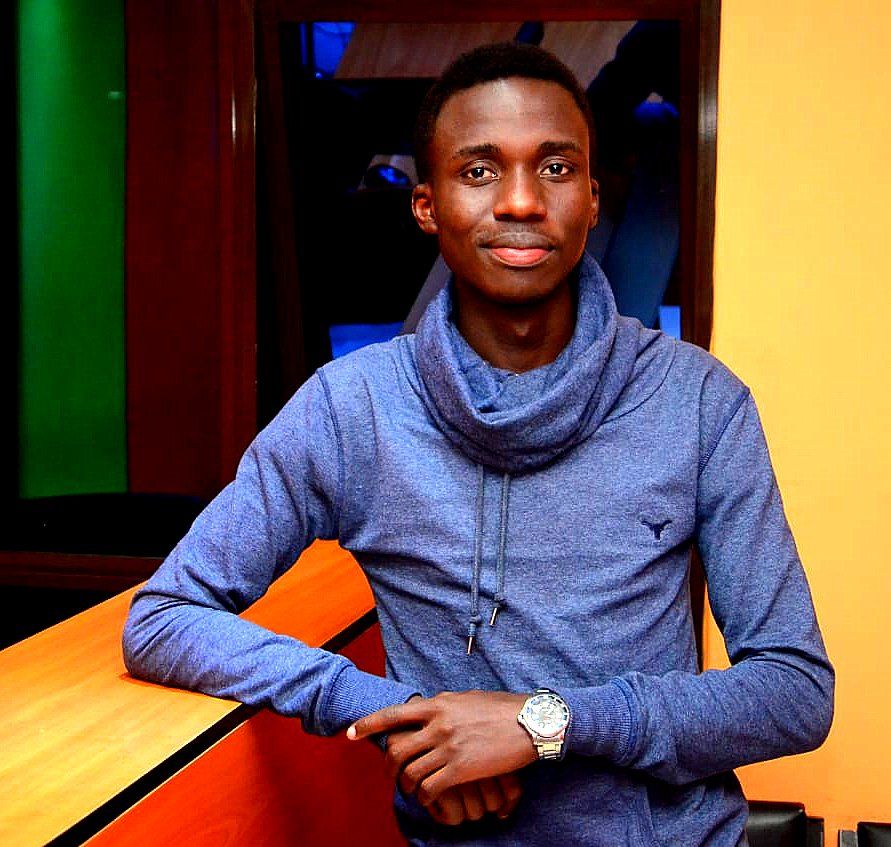When we are young, we all think we are going to score big; a home run that will give us an unfathomable amount of wealth where we’ll never have to work again a day in our lives. And the truth is some people are that lucky but as Prof. Scott Galloway always says, “Assume none of those people is you”.
And with that comes the question, how do we build wealth without relying on scoring it big? First off, let's start with some definitions. According to me, and for context, being rich is when your income exceeds your expenditure. So if you make Ksh. 30,000 a month and are able to live on Ksh. 20,000; you are rich. That said, being rich is quite simple. Simply live below your means.
On the contrary wealth, to me, would be having enough passive income to cover your expenditure. That means you don’t have to actively exchange time for money.
The majority of what I write here is based on experience, interaction with others and reading. Nonetheless, I try to keep it as realistic as possible. There are enough be like Warren Buffet posts out there, and I don’t intend to add on that collection. Ergo, the views represented here might be biased and I also completely recognize the role luck plays in all of this.
Now, let’s paint a picture to work with:
- Our persona is a recent graduate, 26 years of age, working in a middle-level position with a gross income of Ksh. 90,000 and a net income of approximately Ksh. 67,000.
- We are going to work with a 20-year time period.
- We will adjust the amount of money invested for inflation year on year and work with a figure of 5.2%.
- The monthly expenditure (including lifestyle) is Ksh. 40,000.
This will leave us with a Ksh. 27,000 of disposable income to play around with. And now, given this scenario, let’s look at the actual bets.
Most of us are only two medical bills away from insolvency.
Sam Gichuru
Bet #1: Look after your health
Medical cost is one of the biggest factors that drive people into poverty. Paying for quality medical access is ridiculously expensive. Sam Gichuru once tweeted that most of us are only two medical bills away from insolvency. I couldn’t agree more. Albeit one cannot fully guard against this, I’m of the belief that there are measures one can take to increase their odds in this facet.
Firstly, eating right and getting plenty of sleep is essential. Regular exercise even if it’s walking can also help to keep one in fit. However, one thing I believe we really need to have is medical insurance. The most affordable one here being the National Health Insurance Fund (NHIF). Whenever you can, ensure that your contributions are regular, they go a long way. Another way could be factoring in private medical insurance when negotiating for salary to abstract that cost from yourself.
Bet #2: Upskill and re-shape your career
The truth I came to realize is that career choice plays an enormous role in economic fortune and building wealth over one’s lifetime. Constantly upskilling and re-shaping your career to match what is valuable and in demand is a key indicator of increasing your income over time.
People with rare and valuable skills earn a lot more than people without. It’s simple economics. Combine two skills that would often seem antagonistic and carve a niche for yourself. For example, I have a friend who is an accountant and a lawyer. He can focus on being a financial advisor or controller with a much deeper understanding of the regulations surrounding the sector. Doing B. Com and combining it with CPA is not really that rare.
I also think that regardless of your profession, having a basic understanding of accounting and law should be something that we all aspire to do. I propose starting with accounting for dummies.
Bet #3: Start planning for your retirement
The best time to start thinking about your retirement plan is now. Why? Because of compound interest. There’s an urban legend that Albert Einstein once said, Compound interest is the most powerful force in the universe. Whether or not he said it, it should become your financial motto.
Having a life assurance plan should be something that each one of us considers. The earlier you take it the better. For starters, you get lower premium rates than you would have if you started late. And secondly, you have an opportunity to make use of compound interest. There’s also a ton of other benefits that wouldn’t be a fit for this article.
Various firms have different vehicles but my favourite is from the ICEA Lion group. For as little as Ksh. 10,000 you can get started. I’m not sure how the sum assured is calculated, but working with a minimum of 20 year time period that is required for maturity, you are looking at figures in the range of Ksh. 10,000,000 or even more. This would mean at 46, your net worth would be in the tens of millions.
The other bit is making use of NSSF. You can increase your monthly contributions from the minimum Ksh. 500 to around Ksh. 1000 monthly. This would throw in a couple of millions in the figure aforementioned above. I say a couple of millions because I’m really not sure how the sum assured for this asset is usually calculated. Also, did you know that your employer usually matches the amount you contribute?
So now, with the deductions life assurance and NSSF of Ksh. 10,000 and Ksh. 500 respectively, we have Ksh. 16,500 left from our disposable income to invest in other asset classes.
Bet #4: Manage your risk
One of the oldest investment philosophies for risk management is diversification. Mutual funds are a blend of different asset classes created for the purposes of minimizing the risks to the shareholders or investors. Asset classes that can be invested in bonds, stocks and other market instruments. There are different mutual funds in Kenya and I employ you to research more on them to find out which one works for you.
The type I am interested in is the Index Mutual Fund. In Kenya, the yield over the last 20 or so years has been between 8 – 15 %. There are different firms that offer this investment vehicle but as you will notice, I have a bias for ICEA Lions.
Working with an 8% yearly return compounded monthly (although it’s actually daily) adjusted for inflation and done consistently for 20 years, a monthly investment of about Ksh. 10,000 would yield roughly Ksh. 9 million.
At age 46, and with our two conservative investment vehicles, we are looking at about 20 million in net worth.
The deduction for a Mutual Fund leaves us with Ksh. 6,500.
Bet #5: Save for the rainy days
Peace of mind can also be an investment on its own. It allows you clarity of mind to make more prudent decisions. That’s where savings come in, a buffet for when life throws you a curveball.
I’m against saving using SACCO for the simple reasons that the yield is too little and accessing your cash is limited to taking a loan which also attracts an interest of its own. I’d rather choose the right bank to save with.
One of the key elements that you have to look at is that the yield either matches or exceeds inflation such that the value of your cash (purchasing power) is not eroded by inflation. In Kenya, we are lucky to have a few options.
Kenya’s inflation averages at about 5. 2 – 5.7 %, so you’d want an interest rate slightly above 6%. KCB has interest rates as high as 8.5% while CBA has ~7% and Equity ~6.5% or thereabouts. I’d advise picking a bank that has a good blend of flexible withdrawal plans, low or no maintenance charges and a reasonable yield.
Again, this is short-term to buy your freedom on rainy days. In the event you don’t get to use it the entire year, a portion of it could be used for travels and another portion split between your investment vehicles.
For the savings plan, you can set aside Ksh. 5,000 a month, leaving us with a disposable of Ksh. 1,500.
Bet #6: Choose the right current account
You might have noticed that the last two points are centred around giving you peace of mind. The right bank offers you the right options to buffer you against financial hard times.
For instance, a Stanbic executive account would cost you about Ksh. 900 monthly to maintain. Needless to say, the fees are worth it because of the features the account has such as free withdrawals over Stanbic ATM, a life insurance cover of up to Ksh. 1 million and retrenchment cover in case you are let go from your job of ~Ksh. 900,000. For someone living on Ksh. 40,000 a month, 900k means 22 months of freedom. It goes without saying that terms and conditions apply but I would still urge you to check out the account.
Bonus Bet
If you have more disposable income, you can look into other vehicles such as purchasing individual stocks and bonds to further diversify your portfolio. However, stocks are high risk and require a level of understanding before one dives into them. You could begin by researching and reading books such as the intelligent investor and securities an analysis both by Benjamin Graham. Don’t just buy because it’s “hot” in the market. Other aspects could involve the setting up of businesses and side hustles. I reiterate, these are high risk but also high reward ventures and one should go into them having done some thorough research and with an open mind.
While writing up this article, there are factors that were not taken into consideration. Tax implications, both positive and negative, were not discussed at all. While looking at things like Index Funds, I also did not talk about dividends in the event that your portfolio has stocks as an asset class. But it should hopefully provide some sort of blueprint to creating financial freedom.
As I mentioned earlier, the majority of what I have shared is based on personal experience, interaction and reading. Ergo, I practice what I preach. I have implemented a majority of the things discussed above and I’m still working out systems to implement others.
It dawned on me that creating wealth takes time. It’s a craft that requires patience. Beyond that, however, is the kind of discipline you develop and the person you become. I hope more of us, millennials, especially in our country realize that there’s no such thing as instant wealth and that we would have to delay gratification to some degree if we wish to live a life of no worry ahead.
I’d love to hear your thoughts on how you are working to build your wealth.





